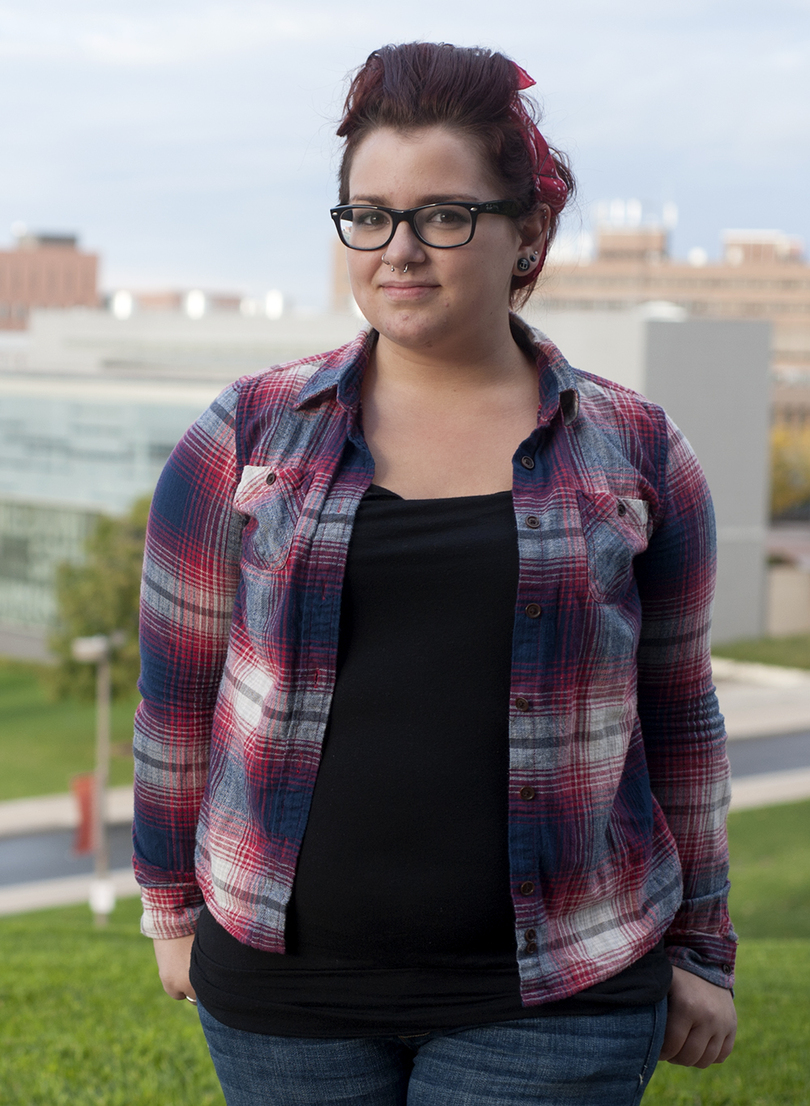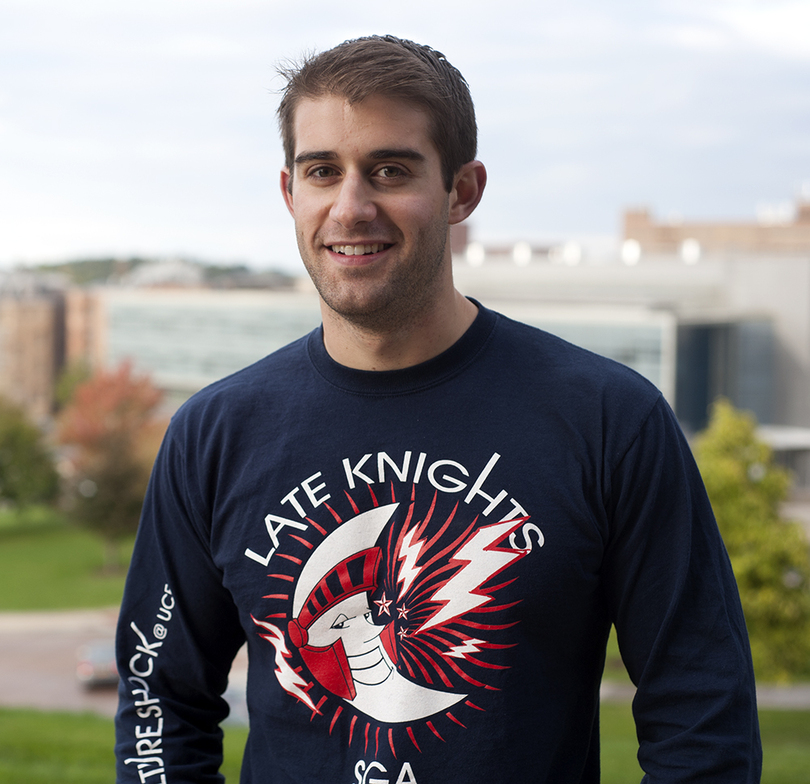Creating community: National Coming Out Day prompts reflection on LGBT environment at SU
First-year students face an additional set of struggles when they arrive on campus in the fall: getting to know the campus, making friends and learning how to balance academics and a social life.
But Katie Dupere, a junior magazine journalism major and lesbian, gay, bisexual and transgender studies minor, had an even bigger struggle when she arrived at Syracuse University: She had not yet come out to her father.
During the LGBT Resource Center’s Ally Development Training Program, she asked director Chase Catalano for advice. He took 15 minutes to discuss the matter with her following the training.
When Dupere met with him at the beginning of last year, she was surprised to discover that he remembered everything they had previously discussed.
“I was surprised that he remembered that and I told him that and he said something like, ‘Well, there are some people that are easy to remember,’” Dupere said.
Oct. 11 is National Coming Out Day, and SU is one of the few universities that celebrates National Coming Out Month. SU has a comprehensive LGBT policy. It has the University Senate Committee on LGBT Concerns, created in 2002; an LGBT Resource Center, formed in 2001; and a lesbian, gay, bisexual and transgender studies minor, formed in 2006 by Margaret Himley, associate professor of writing and rhetoric, and Andrew London, professor and chair of the sociology department. Both served as co-chairs of the senate committee.
The LGBT studies minor requires students to take two lower division core courses — QSX 111: “Queer Histories, Communities, and Politics” and QSX 112: “Sexualities, Genders, Bodies” — along with four upper division courses. The minor is interdisciplinary.
Himley said the majority of the students enrolled in the course are heterosexual, showing a high level of interest in the subject.
“It got much better,” Himley said. “I would say that there were those small student groups that always existed, but there was no institutional presence that valued and values LGBT people and LGBT scholarship, and now, such a thing exists.”
For example, the university’s benefits eligibility policy covers eligible spouses, and the benefits-eligible employees qualify as partners who have “entered into an officially recognized marriage, same-sex civil union or registered same-sex domestic partnership that has been authorized by a state, territory or foreign government,” according to the Syracuse University Policies and Procedures website.
The executive leadership of the university has been supportive of the LGBT community. London credited individuals such as Chancellor Nancy Cantor, Vice Chancellor and Provost Eric Spina, College of Arts and Sciences Dean George Langford and Student Affairs Dean Thomas Wolfe, who was formerly dean of Hendricks Chapel.
“The LGBT studies program received one of the Chancellor’s Leadership awards for a project called ‘Transnational LGBT Studies,’” London said. “Again, I think that shows just broad support for LGBT studies, community, etc. It’s all across the institution. I see a lot of support.”
And it’s not just about the university’s policies — it is also about the diversity of the offerings.
Logan Kriete, a graduate student in the S.I. Newhouse School of Public Communications, said that at his undergraduate college, the University of Central Florida, the LGBT students were all lumped together, whereas SU considers how LGBT students vary on campus — for example, undergraduate versus graduate, different races and new versus returning students.
“They’re more diversified in terms of who they serve,” he said.
Dupere, who is also editor-in-chief of OutCrowd Magazine — the only LGBTQA student-run magazine on campus — said that SU has a good environment for LGBT individuals.
She has not experienced any personal attacks, but she said that people might give a “rude glance” to her and her girlfriend and leave it at that.
London shares this view that the environment at SU has generally been a positive one.
“My personal experience is that I’ve been very happy here and this is exactly the institution at which I would like to work,” London said. “And I give a lot of credit to the leadership for that.”
London emphasized that there are certain goals that are tied to financial constraints, like hiring more faculty members who specialize in LGBT studies. But he said that the librarians at SU have worked with faculty members to elevate the material they need for the LGBT studies program.
Catalano said that students attend certain programs more than others and that needs, populations and the programs and services that people choose to use change constantly.
Over the summer, Catalano; Tiffany Gray, associate director of the LGBT Resource Center; and Lauren Adamski, program coordinator of the center, decided that starting this semester they would stop using the moniker “LGBT” and instead use “marginalized genders and sexualities.” Catalano said that the change has been received well.
The new term, he said, considers the myriad ways in which individuals identify themselves, contrary to what he called an “additive method” that tacks letters on to “LGBT.”
“It keeps us open to possibilities and potentials without continuously having to add a letter or feeling as though we are not attending to the needs,” he said.
Though Kriete said that the new term is more inclusive, he was critical of the word “marginalized,” saying that it has a negative connotation. The University of Central Florida changed its Gay, Lesbian and Bisexual Student Union, or GLBSU, to Equal, reflecting the notion that there are infinite identities.
Said Catalano: “Our goal is to continue to make campus safer and more places safer. If students feel like the only safe place they can go to on campus is the resource center, then we still have a lot of work to do.”
Published on October 11, 2012 at 2:58 am
Contact Madina: matoure@syr.edu







